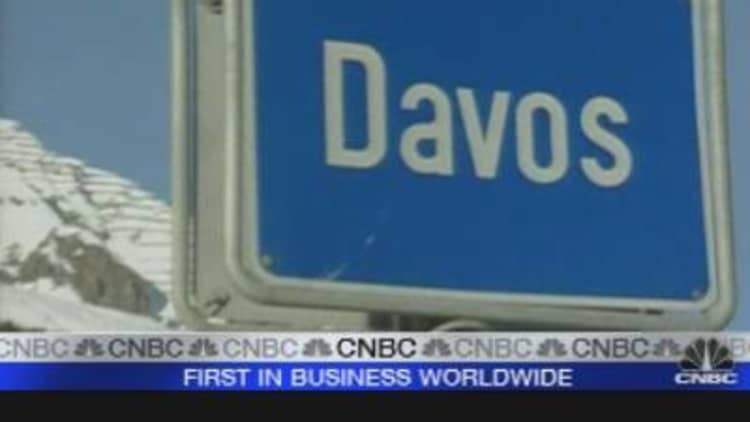In 2008, at the World Economic Forum in Davos, it became clear that the global economy was in big trouble. As delegates made their way to the sleepy Alpine town the Federal Reserve shocked global markets with a 75-basis-point cut in interest rates and markets across the world tanked.
Then a single trader from Societe Generale was found to have lost €5 billion ($7 billion) and the mood was one of near despair as the great and the good questioned how we got into this mess in the first place.
By the time the world’s elite met again in 2009, the SocGen crisis seemed like a mere footnote to the previous year. Lehman Brothers was gone, Europe’s banking industry was on its knees and newly-elected President Barack Obama faced the biggest crisis of confidence in the market economy since the 1930s.
You could sense the fear on the ground and all the talk was of who was not attending and who would survive the next 12 months.
With central banks and governments across the world pumping billions into the system within two months the world began to look like a better place. Stocks across the world rallied sharply and as preparations are made for the 2010 meeting the bulls are hoping the worst is now behind us.
The Risks
But uncertainty continues to dominate and the bears can point to so many problems that it is very difficult to believe 2010 will be a year of mild recovery.
As the World Economic Forum itself points out in its closely watched Global Risks report there is a "significant chance" of a second financial crisis. Spotting where that crisis comes from is no easy task.
WEF predicts a 20 percent chance of a collapse in asset prices that will cost the world $1 trillion. WEF also warns of a 20 percent chance of a sovereign debt crisis and is increasingly concerned that the Chinese economy is overheating and could actually be a drag on the global economy by the time WEF meets again in 2011.

Very worrying stuff, and that's without mentioning the two wars being fought by the US, the failure of the Cop15 meeting and the prospect of a energy and food crisis as the world’s population continues to grow at a rate many believe is unsustainable.
The Opportunities
All this talk of crisis and uncertainty is enough to depress even the most optimistic, but it is not all doom and gloom. Last year, most would have taken a 60 percent gain in the global stock markets in a heartbeat.
Companies across the world have been getting their balance sheets in shape for over two years and many are now cash rich and eyeing takeovers at prices that would have been impossible in 2007.
Individuals who kept their jobs and are cash rich have never had it so good. Low borrowing costs and incentives to buy big ticket items mean consumers who do not owe thousands in debt can enjoy life unless they are unlucky enough to lose their jobs.
The important thing to remember amid all the hype of the World Economic Forum is that, for all the predictions made over the coming week, few will be able to tell you what the world will look like in 12 months time. The doom and gloom brigade will probably be too bearish and the optimists will probably miss a crisis or two that will fail to live up the most bearish predictions.

